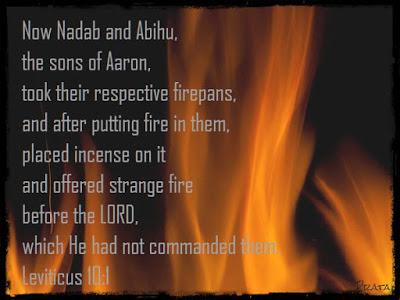John MacArthur and his team at Grace To You took a stand against this movement and sought to bring clarity to why its doctrines needed comparison to the Bible correction. To that end, they organized the Strange Fire Conference, held in the fall of 2013. One of the main purposes of the conference was to initiate a substantive discussion about these issues. It achieved its purpose. Every sermon preached at the conference rebuked the movement simply by preaching the truth, and brought correct biblical doctrine to the fore. Given the outcry, it seems that the effect was immediate.
There were many good questions asked at the various seminars and Q & A sessions held during the conference period, but not all of them could be immediately answered. After the conference concluded, ministers and theologians at Grace Community Church and The Master's Seminary wrote out answers to these unanswered questions, compiled them, and put them on one web page.
The page is a treasure trove of good, solid rebuttals to and practical helps about what to do if encountering Charismatic doctrines in your church, in your family, or in yourself. Here is just one of the Questions and Answers in the Strange Fire Q&A page.
~~~~~~~~~~~~~~~~~~~~~~~~~~~~
Does God allow false teaching to continue so believers can distinguish between true and false doctrine?
Paul told the Corinthian church, “There must be heresies among you so that those who are approved might be made manifest’ (1 Corinthians 11:19). Would you please comment on this verse in light of the charismatic movement? Does God allow these false movements, in part, so the distinction is made clear to His people? Thanks.
The Greek word translated as “heresies” in the King James Version is hairesis. While that word can refer to false teaching or heresy in certain contexts, Paul’s intended meaning when using the word in 1 Corinthians 11:19 is clearly the other possible meaning of “division, faction, separate group.” In this paragraph Paul is confronting the Corinthian believers’ selfishness and sectarianism (see vv. 18, 21–22, 33). The text of the New King James Version clarifies the meaning by updating the translation from “heresies” (KJV) to “factions” (NKJV). Paul says that when those inevitable divisions happen, they serve the good purpose of distinguishing between the sinful and the righteous people in the church.
Having said that, the situation Paul describes regarding disunity in the Corinthian church is similar to the result of the error being taught within the charismatic movement today. The doctrines they tolerate and often perpetuate distort, pervert, and contradict sound, biblical teaching. The truly saved who revere and carefully study God’s Word can see the difference between false charismatic teaching and sound theology. While we would never condone false doctrine and practices, we do rest in our confidence that God uses even the wickedness of man for His good purposes (cf. Genesis 50:20; Acts 2:23; Romans 8:28)

